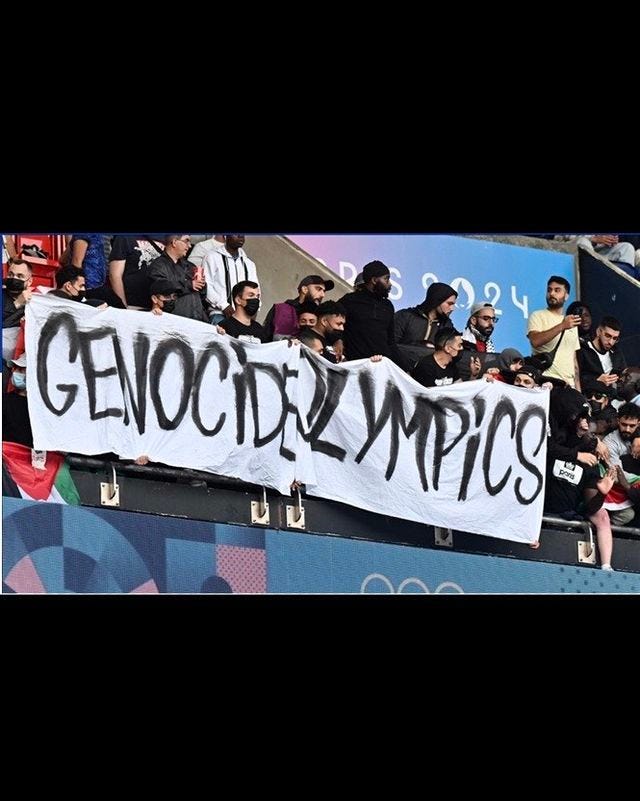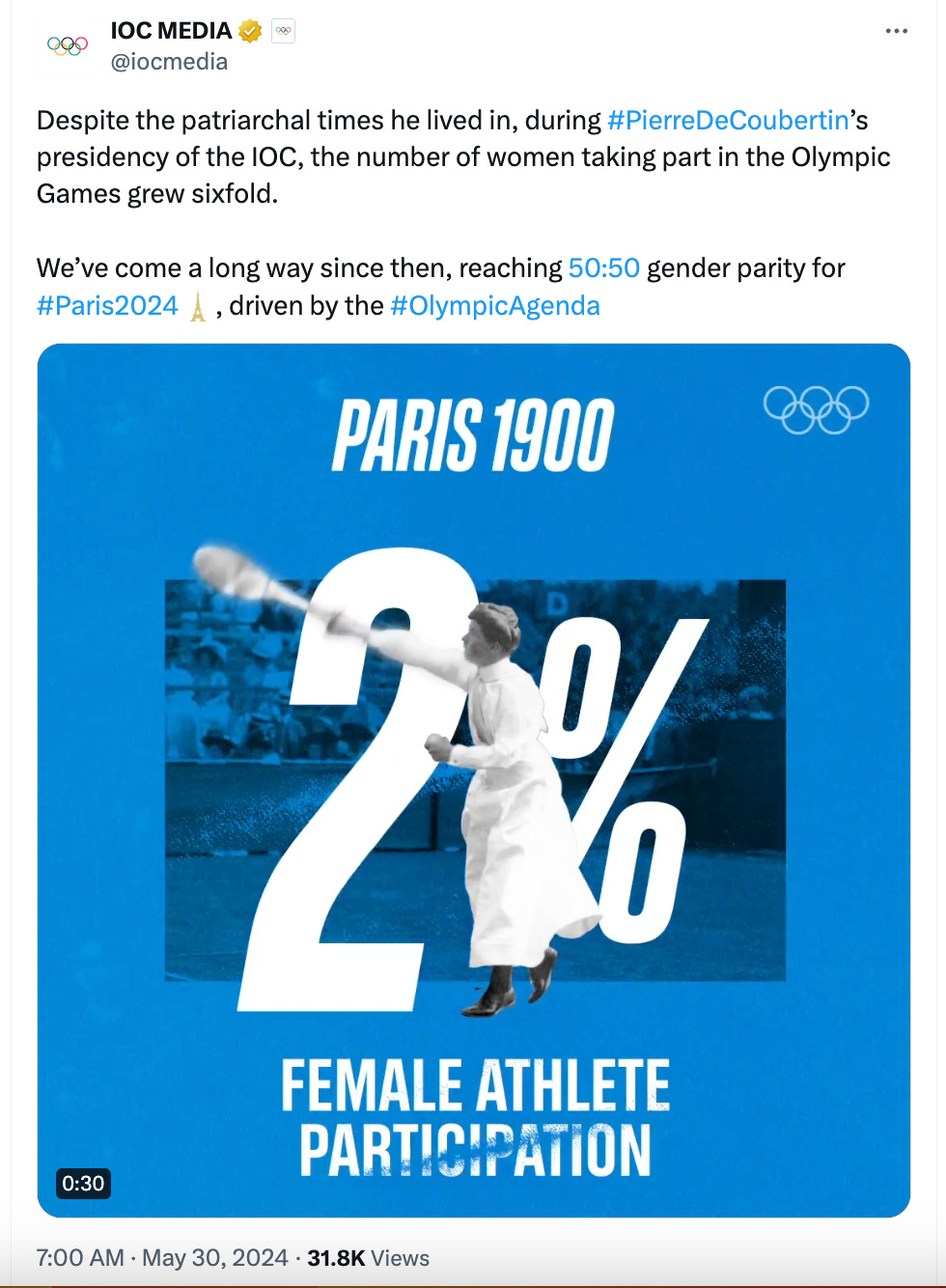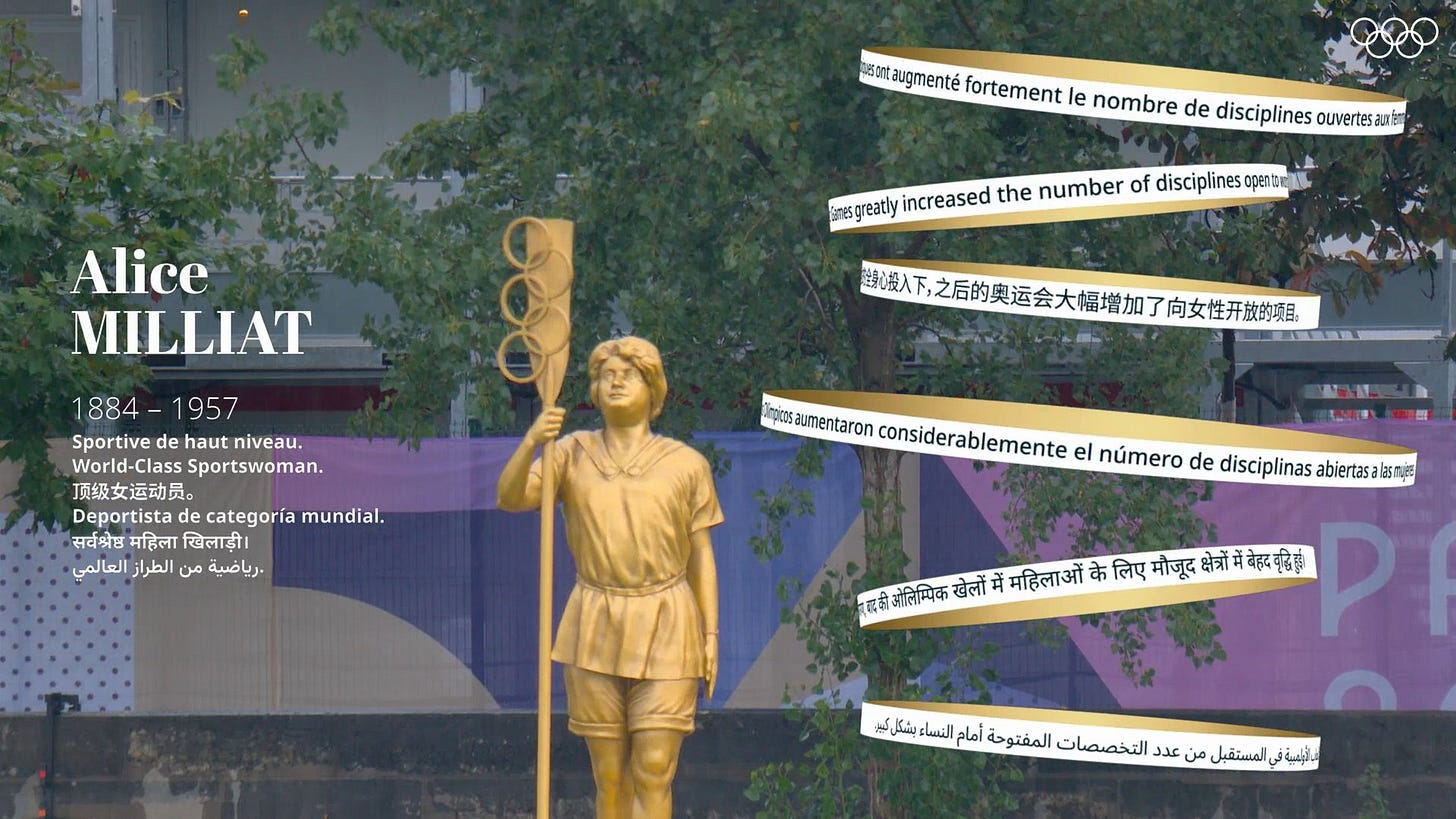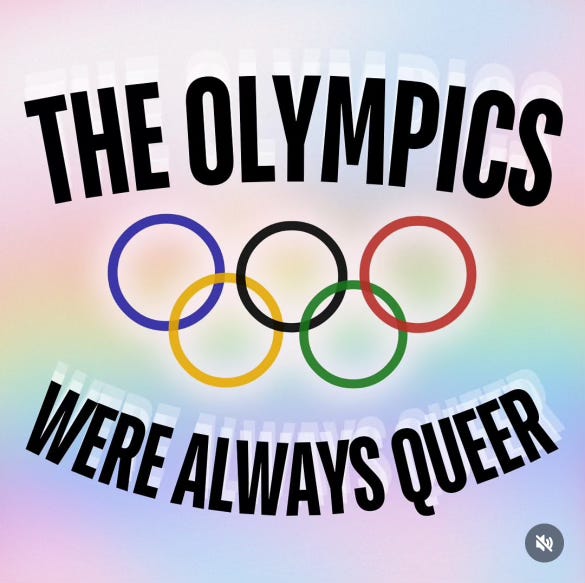Thank you for being here! Please consider upgrading to a paid subscription if you like what you read! Paid subscriptions allow me to dedicate more time to this newsletter. It’s not just the time I spend writing, but the time I spend planning, researching, and reporting that is supported by upgrading.
If you want to pay for a subscription but don’t want to give money to Substack, feel free to use my Venmo or PayPal. Just reply to this email and let me know you’ve sent it so I can add your email to my paid list!
Tomorrow: a new “In the Field” interview with CBC Sports’ Shireen Ahmed, the first hijab-wearing woman on an official Olympic broadcast in Canada (among many other things). Today, a brief rant about the IOC, as well as some links from around the Olympics and other queer sporting updates.
In case you missed it: I was on WNYC’s All of It alongside Michael Waters talking about sex testing in sport. I was also on the On the Bleachers podcast chatting about sports, gender, queerness, and the Olympics.
Haterade: the IOC’s revisionist history
The Paris Olympics are the first Games to reach gender parity, meaning there are an equal number of athletes competing in men’s and women’s sports. That fact has been promoted a lot ahead of these Games—and for good reason. Women have long been excluded from sport at every level, including on the largest stage in the world.
Gender parity deserves to be celebrated (while also recognizing that trans and intersex athletes are still being excluded in many sports). The reasons for the exclusion of women athletes go back a long way and are baked into the very root of the Olympic movement. The IOC itself fought for a long time to keep women marginalized on the playing field. And so to watch the IOC accounts brag about the gender parity and frame it as if their founders deserve credit for the progress is hilarious.
Even more hilarious? Their attempt to rewrite former IOC president Pierre de Coubertin as some sort of feminist ally.
Olympics expert Jules Boykoff called this framing “a zany bundle of deception and historical erasure” and he is absolutely correct. Because let’s talk about Pierre de Coubertin. Coubertin opposed including women in the Olympics, believing that “an Olympiad with females would be impractical, uninteresting, unaesthetic, and improper.”
“I do not approve of women’s participation in public competitions,” Coubertin said. “At the Olympic Games, their role should be above all to crown the victors, as was the case in the ancient tournaments.”
Writing in the 1912 Olympic Review, Coubertin said, “[the Games are] the solemn and periodic exaltation of male athleticism, with internationalism as a base, loyalty as a means, art for its setting, and female applause as reward.”
The claim that the number of women grew six-fold during Coubertin’s presidency (from 1896-1925) may be technically accurate, but it’s not hard to show a six-fold increase when the number is close to zero. The IOC’s website attempts some more nuance but it’s still engaging in some pretty egregious revisionist history and even tries to take a shot at “modern cancel culture” (!!!).
On the day he retired from the International Olympic Committee (IOC), in Prague in 1925 at the age of 62, Pierre de Coubertin reminded his colleagues that the great global movement he had created was built on an all-inclusive ethic: “They [the Olympic Games] are global. All people must be allowed in without debate.”
And yet… Coubertin was opposed to the participation of female athletes in the Olympic Games. This contradiction lies at the heart of a controversy that has haunted his reputation and even led modern cancel culture critics to label him a misogynist—an unjust accusation that ignores the historical context of his times and, more importantly, Coubertin's broader position on women in sport.
I’m all for taking people as they exist within their time and historical context, but it’s not like there was no one during Coubertin’s time that was fighting for women to play sports. In fact, the only reason that the number of competitions for women in the Olympics increased was because of Alice Milliat’s Women’s World Games1, which was so successful in the 1920s that it forced the hand of the IOC.
The first Women’s World Games was in 1922 and and they ran until 1934. After the 1934 WWG, Milliat issued an ultimatum to the IOC and the IAAF (now World Athletics, the international governing body of track and field): fully integrate the 1936 Olympics or cede all women's participation to her organization, the Fédération Sportive Féminine Internationale (FSFI). In response, the IAAF appointed a special commission to cooperate with the FSFI, which then gave control of international women's athletics to the IAAF in exchange for an expanded program and a recognition of records set in the Women's Games.
But sure, let’s credit Coubertin. It’s so typical for an organization founded by men and still largely run by men to try to claim credit for the progress made by women.
Links
I love these graphics from Athlete Ally: Go Gays!
I also want to shout out Outsports for their diligent coverage of queer Olympians, including the painstaking work of documenting and counting every one (special shoutout to subscriber and friend-of-the-newsletter Karleigh Webb). As of today, the number is up to 191 out athletes from 27 countries and the medal count for the gays is at three.
Autostraddle has also put together lists of the queer women, trans, and non-binary athletes at the Games: a total list; the basketball players; the soccer players; and the couples.
The Opening Ceremony was gay gay gay. Some favorite memes:
Keep reading with a 7-day free trial
Subscribe to Out of Your League to keep reading this post and get 7 days of free access to the full post archives.







